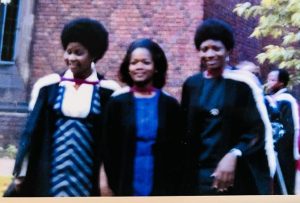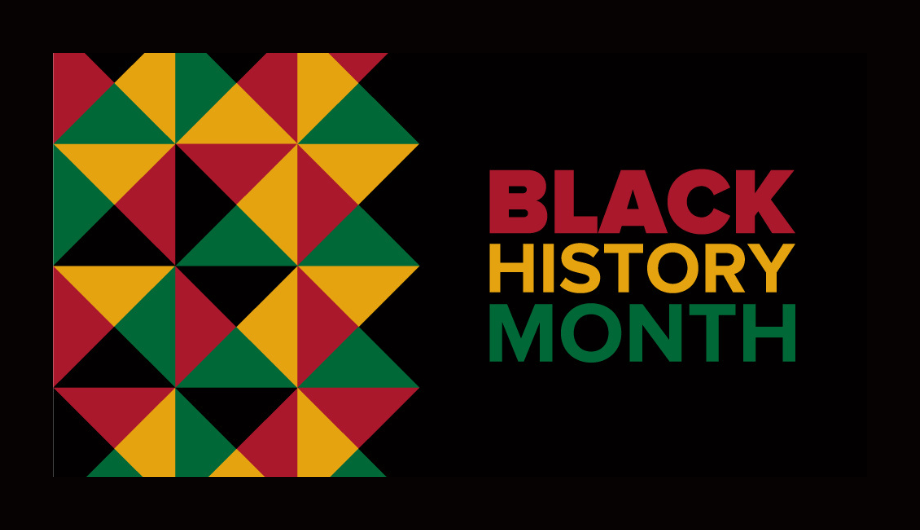
Dr Oge Ilozue
The theme for Black History Month this year is Saluting our Sisters. This is not to disregard our dear men but to acknowledge the powerful work our amiable women of African and Caribbean heritage have made to British society and, in our context, to medical practice in the UK.
We cannot forget that this year also marks 75 years since Windrush arrived in Britain from the Caribbean and we also celebrated 75 years since the inception of the NHS with countless many of the Windrush generation contributing to the NHS over the decades.
Black History Month is an opportunity to share and celebrate untold stories. Like that of my mother – Dr Stella Okonkwo – who came to the UK from Nigeria in the mid-sixties for A-levels and progressed to Newcastle medical school where she graduated in 1973 – so this year marks 50 years qualified. Imagine being so far away from your family as your country was torn apart by the Biafra war from 1967 -1970. Imagine navigating the cultural differences and racism she experienced but still managing to excel in her studies. She went on to work as a GP in London for over 30 years and I always state that I follow in the footsteps of greatness. She was my greatest inspiration and guide as I navigated being brought up as the 2nd generation in my family based in the UK and I often say I am Igbo (Nigerian) via North London.

Dr Stella Okonkwo, left, graduating in 1973.
We have many International medical graduates (IMG) coming from Nigeria presently (the 3rd highest IMG group in the UK behind India and Pakistan) and must make sure we build proper induction and support programmes and proper equality and diversity structures to ensure these valued and much needed staff are fully embedded at all levels of UK practice. Organisations like MANSAG, where I serve as the current Welfare secretary, and Nigerian Doctors UK have been working to support these groups and have regional chapters all over the UK.
As Barnet LMC chair, I spend my time representing and advocating for general practice. I chose general practice as a specialty due to the variety of the role, the opportunity to embed in a local community, form services to meet specific needs and build a practice team to deliver those services. I love my job and always say we need our brightest and best in general practice delivering the highest quality care for our patient populations. We need to continue to demand adequate resources and an equipped workforce able to deliver the excellent universal healthcare we all want.
As GPs, we are in a great position to identify and address some the inequalities still too prevalent in our society and disproportionately affecting our African and Caribbean communities. We have seen some of the damning statistics around maternal care for black women. Black people are also more likely to present late with cancer or cardiovascular disease. However, there is some wonderful work being done to address this, led by black professionals. We saw the power of this during the Covid-19 pandemic and the legacy work that continues has shown me the importance and power of stepping up and being more visible as a black GP and offering the education and empowering of our communities.
Inspire London is a programme developed after the pandemic to raise awareness and promote targeted health interventions aimed at reducing the health inequalities faced by Black people in London. The COVID-19 pandemic highlighted the state of poor health in the Black Caribbean & African communities, which contributed to excessive death rates compared to what was evidenced across the white community. There is evidence that shows how poor health outcomes can be avoided if institutional and structural racism are dealt with head-on. We must be bolder at identifying and tackling this.
Inspire is supported by the Caribbean and African Health Network who have a big vision to eradicate health inequalities within a generation for Caribbean and African people.
London based Fivexmore are committed to highlighting and changing black maternal outcomes in the UK.
Dr Itunu Johnson-Sogbetun, a GP, recently launched HEAL for Black History Month bringing together an impressive array of black doctors contributing to this platform which aims to promote health equity and advocacy learning. The platform has so far tackled cardiovascular health, mental health, women’s health, cancer risk and skin health all as they affect the black community.
These are just a few examples of individuals and black led organisations working to improve the outcomes for patients and to promote and amplify the contribution and excellence of the many black health professionals who have made an indelible impact to delivering healthcare in the UK.
As we celebrate Black History Month this October and highlight the phenomenal contribution our black GPs and organisations continue to make to delivering better health, we must remember that the work continues beyond the month, beyond pandemic lessons and we can never be tired of continuing to fight for better for our patients and teams.
Londonwide LMCs has been marking Black History Month by sharing stories on our social media channels of historic black GPs working in London.

